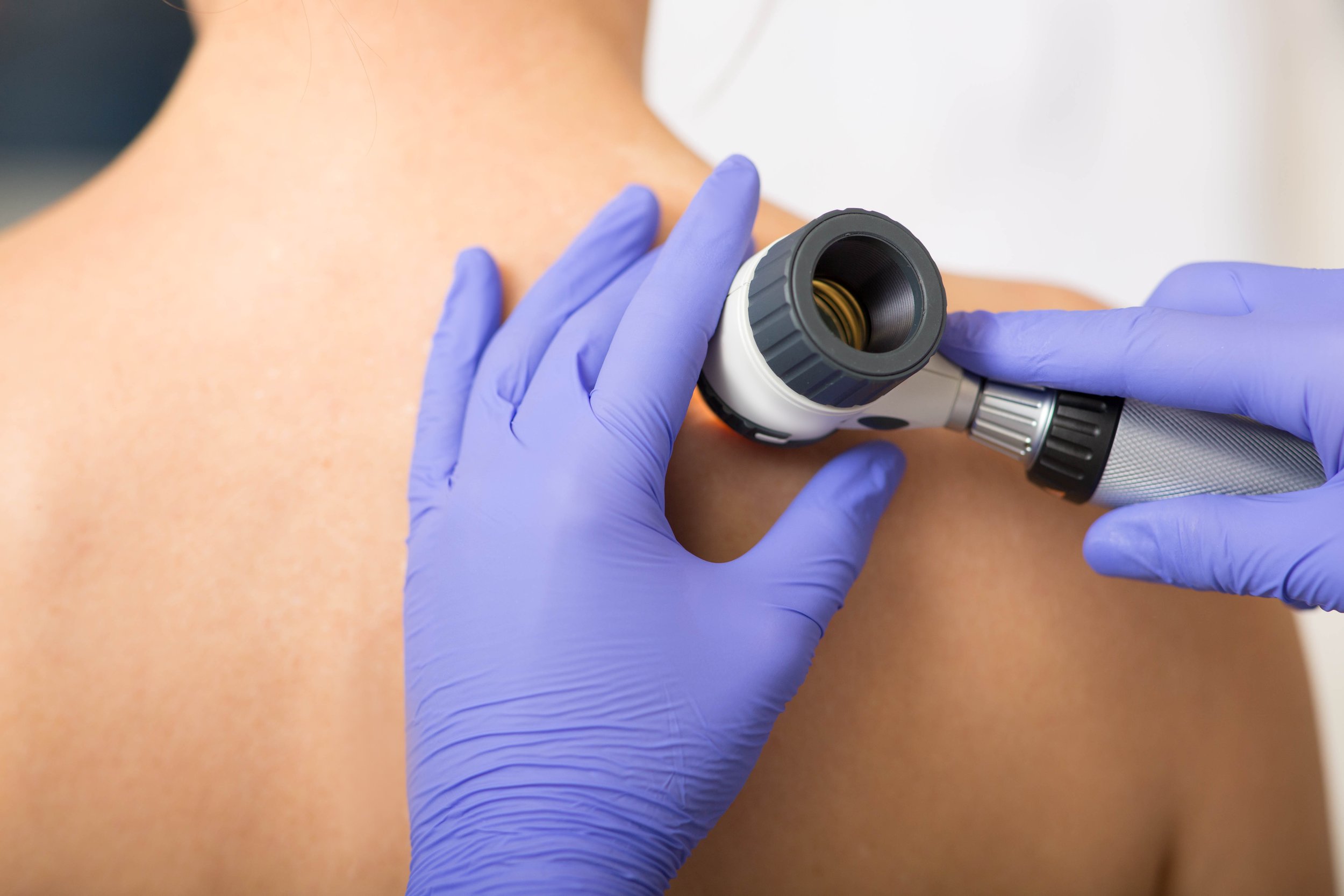Dermatology & the Essential Role of Skin Check-Ups
Your skin isn’t just the body’s first line of defense—it’s a full-time health indicator. Regular dermatological check-ups are the best defense against both common and serious skin issues. A total body skin exam (TBSE) is simple, non-invasive, and arguably one of the most cost-effective screening tests in medicine . While not every check guarantees reduced mortality, these exams help catch many conditions early, guiding timely treatment and improving outcomes .
Why Routine Visits Matter
Dermatologists detect not only suspicious lesions but also manage chronic conditions such as eczema, plaque psoriasis, and hidradenitis suppurativa (HS). Regular appointments enable:
Monitoring of disease progression
Personalized adjustments in treatment
Early detection of complications like skin cancer
🔍 Common Skin Conditions & Clinical Care
Eczema (Atopic Dermatitis)
A widespread inflammatory skin condition that frequently flares and recurs. Dermatologists help refine treatment plans—topical agents, biologics, etc.—while preventing secondary issues. Recent clinical trials have led to new FDA-approved biologic therapies for atopic dermatitis in 2024, offering better control and reduced flare-ups .
Plaque Psoriasis
This is the most common form of psoriasis, characterized by thick, scaly plaques often found on knees, elbows, scalp, and back. Psoriasis affects about 2–4% of people and significantly reduces quality of life. It’s often linked with psoriatic arthritis (affecting up to 30% of cases), cardiovascular risk, and depression .
Hidradenitis Suppurativa (HS)
HS is a chronic inflammatory disorder marked by painful nodules, abscesses, tunnels, and scar tissue in areas like armpits and groin. It affects up to 1–4% of individuals and typically takes years to diagnose accurately—delays that can dramatically affect patients’ physical and emotional well‑being . Clinical trials for HS are ongoing, including biologic agents like secukinumab that gained EU approval in 2023, and emerging treatments are expanding options for management .
🧪 The Power of Clinical Research
Without clinical trials, dermatology would lack the scientific foundation to advance new treatments. Studies evaluate safety, efficacy, and quality-of-life outcomes using metrics like the Dermatology Life Quality Index (DLQI), widely used across psoriasis and eczema trials .
Recent research highlights include:
Hyperspectral dermatoscopy—a non-invasive imaging technology—showing promise in early diagnosis and characterization of skin lesions for broader research and clinical use .
Advancements in biologics for psoriasis, new HS therapies, and new treatments for prurigo nodularis from 2024 FDA approvals .
✅ Why Regular Check‑Ups Save Lives & Quality
Early detection: Spot precancerous or cancerous lesions like melanoma before they spread .
Chronic disease management: Conditions like eczema, psoriasis, and HS benefit from ongoing monitoring, new therapies, and lifestyle guidance.
Quality-of-life improvement: Tools like DLQI show measurable progress in patients participating in clinical trials and receiving personalized care .
Equity & inclusion: Certain groups (e.g. people of color) are at risk of misdiagnosis or delayed detection, especially for skin cancer and HS—highlighting the importance of dermatologists trained in diverse skin presentations .
📅 Take Action: Your Skin Check Checklist
Schedule a full dermatology exam every 1–3 years if you’re low-risk; more often if you have chronic skin conditions or a history of cancer .
Perform monthly self-exams using tools like the ABCDE method (Asymmetry, Border, Color, Diameter, Evolution) and photographic tracking of moles or marks .
Seek dermatological evaluation for symptoms like persistent redness, itching, plaques, lumps, drainage, or scars.
Visit one of our partnered dermatology groups:
🌱 In Closing
Dermatology empowers us to see beyond the surface. Routine check-ups unlock early diagnosis, better management of chronic conditions, and access to research that improves lives. As treatments evolve—from biologics for eczema and psoriasis to advanced therapies for HS—the partnership between you and your dermatologist becomes more vital than ever.
Interested in participating in dermatology research? PRG offers studies and partnerships aimed at bringing better care—so we can deepen scientific knowledge and improve skin health one check-up at a time.

